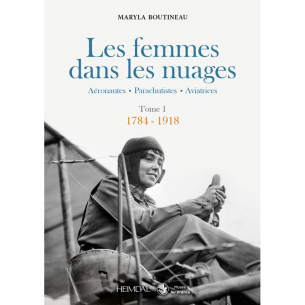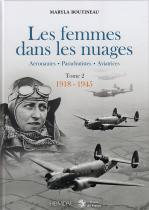In terms of aeronautics, the collective memory retains the memory of the Montgolfier brothers and their hot-air aerostat which rose into the sky in 1783, of Pilâtre de Rozier who, the same year, performed a free balloon flight, of 'André-Jacques Garnerin who made a parachute descent in 1797, and Louis Blériot who crossed the English Channel on his Blériot XI in 1909.
As for women, their role in the conquest of the air has somewhat faded over time, while examples of female perseverance and courage are legion. In 1784, Elizabeth Tible caused a sensation when she flew over the city of Lyon in a balloon while singing opera arias. In 1785, actress Letitia Ann Sage became the first English aeronaut, and in 1799, Jeanne Labrosse made the first female descent by parachute.
In the 19th century, the aerial shows of Frenchwomen Élisa Garnerin and Sophie Blanchard brought luster to imperial and royal celebrations. European courts are snapping up these intrepid aeronauts who perform in front of tens of thousands of spectators, in Germany, Italy, Austria and Russia. During her ascents, the German Wilhelmine Reichard throws poems and flowers to the population. Louise Poitevin set out to conquer the skies seated on a horse, and later, the aerial acrobats numbered in the dozens. In the United States, Mary Myers provides first flights for thousands of people. In 1913, the German Elfriede Riotte became an airship pilot.
With the advent of heavier than air, Raymonde de Laroche obtained her airplane pilot's license in 1910, followed by many other women in Europe and the United States – Marie Marvingt, Hélène Dutrieu, Hilda Hewlett, Lydia Zvereva, Harriet Quimby, Mathilde Moisant, Katherine Stinson, Melli Beese, Bozena Laglerova, to name but a few... In 1913, planes dropped the first paratroopers.
Ignoring danger and prejudice, the airwomen set records for altitude, distance and endurance. When the First World War broke out, these pioneers, deprived of their passion, for the most part disappeared into anonymity. A new generation of airwomen will emerge after the First World War









